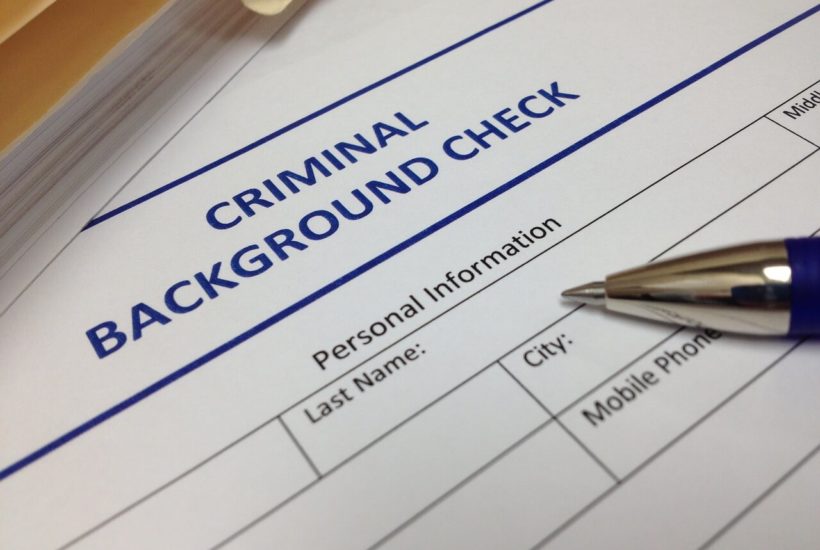Business
The difference between employment background checks and online services
Here’s why employee background checks are always important.

We live in a world full of contradictions. We’re ordered to pay taxes, yet should “ask not what our country can do for us…” In one respect we are taught as per the Constitution that one is innocent until proven guilty, but in today’s digital Facebook age, many form an opinion in haste the moment a potential scandal breaks.
Often, the biggest contradictions are internal, between what we want and what we expect. Everyone I know expects to find the smallest details about friends or acquaintances online. However, no one wants their own information to be easily searchable. After all, we worry that employers will discriminate against us, and our reputation could be ruined if certain information is revealed.
Nonetheless, there are legitimate reasons to want to know these details about others. When you’re meeting a blind date, looking for a roommate, or joining a new meetup group, you want to be sure that they’re not potentially dangerous. For this kind of thing, you can easily use the best background check sites for a general background check.
While it might be a good precaution to use a background check for personal reasons, the good news is that there are rules in place that stop employers using these checks to rule you out of job opportunities.
These are the differences between employment background checks and the online services available to anyone.
The Fair Credit Reporting Act (FCRA)
The Fair Credit Reporting Act (FCRA) is a federal law in place to protect job hunters and employees from discrimination. It determines exactly which background checks can be used and how. A non-FCRA background check can’t be used to do pre-screening on someone coming to interview. This prevents a potential employer from making predispositions before a meeting, based on uncontextualized information.
The FCRA doesn’t make regular background checks illegal. These checks are perfectly legal as long as the request is not regarding information protected by privacy regulations. It simply means that these checks can be used to check up on people you have met or plan to meet, but it can’t be used in a professional setting.
So, are regular background checks a good idea? What kind of information can they dig up?
Criminal background
Before you meet someone in a private setting, it is often a good idea to do a background check. After all, someone you met on Tinder is not necessarily who they say they are. Even a friend of a friend could be lying about their criminal background. This does not make them dangerous necessarily, as they could be trying to protect their reputation, but it can be a warning sign.

A background check can tell you if the person you plan to associate with has been convicted of any crime at all, or even if they are on the sex offender registry. It can even tell you if they have been convicted of a crime in another country. Furthermore, you can find out if they’ve gotten on the wrong side of homeland security anywhere in the world.
Employment history
You can’t use someone’s employment history found on one of these searches as a reason not to consider them for a job, but employment history can help you in many other contexts. For example, if you are trying to find a roommate and want to ensure that they will pay their fair share of the rent, you may want to know that they’re not lying about where they’ve been employed. If you find that they have jumped from job to job, or have been unemployed for a significant amount of time and have lied to you about it, this might be a red flag they may not be the reliable roommate.
You can also find out information such as a history of drug offences or DUIs. Afterall, you want to ensure that you will be living with a responsible person.
When interviewing a potential ‘roomie’, you should always ask them these questions first. It is very possible that someone has a history of unemployment but is currently employed on a permanent basis and in a good space. It is also perfectly possible that they have drug offences or DUIs and may even have had a drug problem, but have since dealt with it.
Uncontextualized information is not a good gauge of any person’s actual worth. But it does ensure you know if they’re hiding that sort of information from you, as that is a sign they may not have worked past it just yet.
Reasons to hide
Keep in mind that even if someone has attempted to hide this information from you, this should not automatically be a disqualification of trust. People with criminal records, DUIs, or any other blemish tailing from their past, might simply be embarrassed or concerned that this information might cause others to jump to judgement.
Use regular background checks for safety purposes when necessary, but always bear in mind that every person is more than the details of their past.

-

 Crowdfunding2 weeks ago
Crowdfunding2 weeks agoEvenFi Launches Run-Off Service to Protect Investors as Crowdfunding Platforms Exit
-

 Africa4 days ago
Africa4 days agoTunisia Holds Interest Rate as Inflation Eases, Debate Grows
-

 Crypto2 weeks ago
Crypto2 weeks agoEthereum’s Growing Capacity Puts Pressure on Layer 2 Platforms
-

 Cannabis6 days ago
Cannabis6 days agoCannabis and the Aging Brain: New Research Challenges Old Assumptions

























